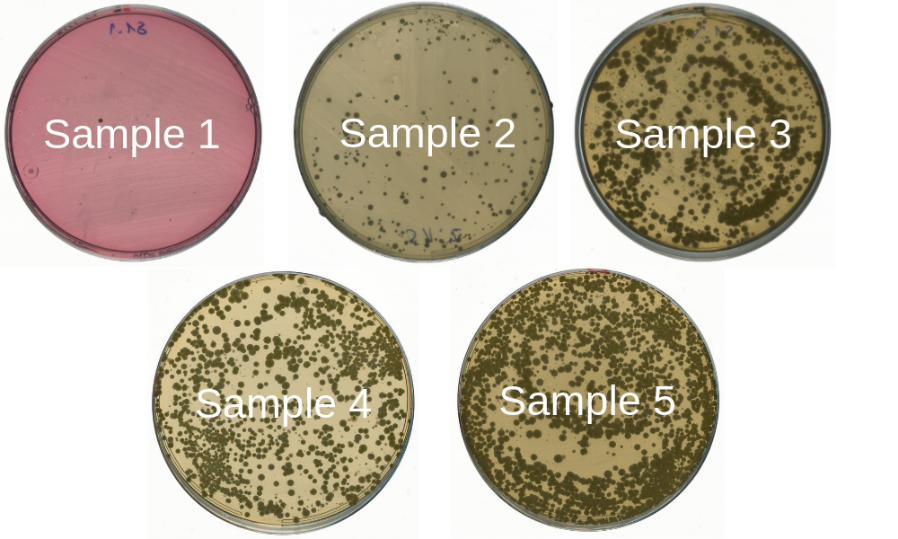How Often Should You Change Your Bed Sheets

Author: Jonathan Warren
There are few better feelings than climbing into clean sheets after a long day. While a good run through the washing machines brings comfort and a fresh smell, a regular clean is important for our health. We know it’s important, but exactly how often should you change your sheets? In this article, we will talk you through some of the details revealed by our recent research on unwashed bed sheets, how often you should wash them and what’s the best way to do it.
How Often Should You Wash Your Bedding?
Bedsheets, pillowcases and duvet covers should be front of the line for a regular wash because they have the most regular contact with your body; you should also be wary of keeping your pillows and mattress clean. Here is how often you should be washing your bedding:
How often should you wash your sheets?
Every 1-2 weeks
How often you should wash your sheets can depend on you, but everyone should be stripping their bed at least once a fortnight. You should consider washing them once a week if you have any dust or pollen allergies, you or your partner sweat a lot, either of you is unwell, or if a pet sleeps in bed with you. If you don’t, you may be increasing the chance of running into some of the issues we mentioned earlier.
How often should you wash your pillows?
Every 3 months
You can get away with washing your pillows a little less often than the sheets but it’s still recommended you wash the pillows at least every 3 months. Despite the covers, your pillow still picks up the likes of body oils, dead skin cells and dust mites. If left too long, it can be a health risk, as well as pretty unpleasant.
How often should you change your mattress?
Every eight years
Although your mattress is better protected than pillows and sheets, it’s recommended you replace your mattress every eight years. Worn out old mattresses will be covered in sweat, dead skin and mites, they could also be to blame for people getting a poor night’s sleep. Buying a fresh one and treating yourself to a mattress top will not only be beneficial for hygiene but could be the key to sounder sleep at night.
Why Should You Regularly Wash Your Bedding?
In 2019, we investigated the effects of not washing your sheets for a month. Our survey revealed that almost a quarter (24%) of us wait as long as three-to-four weeks before changing the bed. Our follow-up research suggested this is not wise. For our experiment we asked a willing volunteer to let us monitor their bed over a month under the following conditions:
- Sleep in the same bed every night
- Never wash or change the bedsheets, pillowcases or duvet cover

This was the bacteria build up over the month.
Amongst the samples we found members of the following bacteria were found:
- Clostridiales
- Bacteroidales
- Fusobacteriales
- Neisseriales
These might just sound like scientific jargon that has no real-world meaning, but when we consulted experts, we found just how dangerous they can be.
Bacteroidetes, for example, can be linked to the following diseases: Appendicitis, Cellulitis and Pneumonia. Aside from the likes of skin ulcers, research sows that Fusobacterium can lead to Lemierre’s syndrome and periodontal diseases. Lastly, Neisseriales has been known to cause diseases like Gonorrhoea and Meningitis. These are extreme cases but shouldn’t be ignored when it comes to your bedding.
While not washing your sheets often can lead to harmful bacteria, it also means your sharing a bed with rather gross things like sweat, dead skin cells, dust mites and even bed bugs. There could be anything from 100,000 to 10 million of these uninvited guests joining you each night. While they don’t bite, they are considered an allergen and can cause symptoms like hay fever, eczema, asthma and coughing.
If this isn’t enough to make you regularly fling your bedding in the washing machine, we don’t know what will be.
What Is the Best Way to Wash Your Bedding?
Now you know how often you should be washing your bedding, here are some tips and tricks to keeping them squeaky clean.
The best way to wash your bedding is selecting the hottest setting the material can stand. The hotter the water, the better job it will do taking out all the pathogens and critters that have found their way onto your bedsheets. It’s worth checking the labels before you dive in and destroy your bedding, some linens can’t be washed in high temperatures or put in the dryer without sustaining damage.
A solution to this would be hanging them out to dry outside. Sunlight is a natural antimicrobial agent and kills mites so makes a better option than drying them inside. One final tip would be to iron your bedsheets once they’ve been cleaned. This will further sanitize more sensitive linens without committing them to a long soak in boiling water.
It can feel like washing your bedding is a bit of a drag, but it’s important for health and hygiene. A handy tip to avoid leaving your bedding too long when you can’t be bothered is to have two sets of sheets and pillow and duvet covers. This way, it’s a quick replacement when two weeks comes around, allowing you to wash the dirty bedding another time. Following the advice in our article will help you take care of your health when you head off for a snooze each night, with the bonus of being able to regularly jump into fresh sheets.



